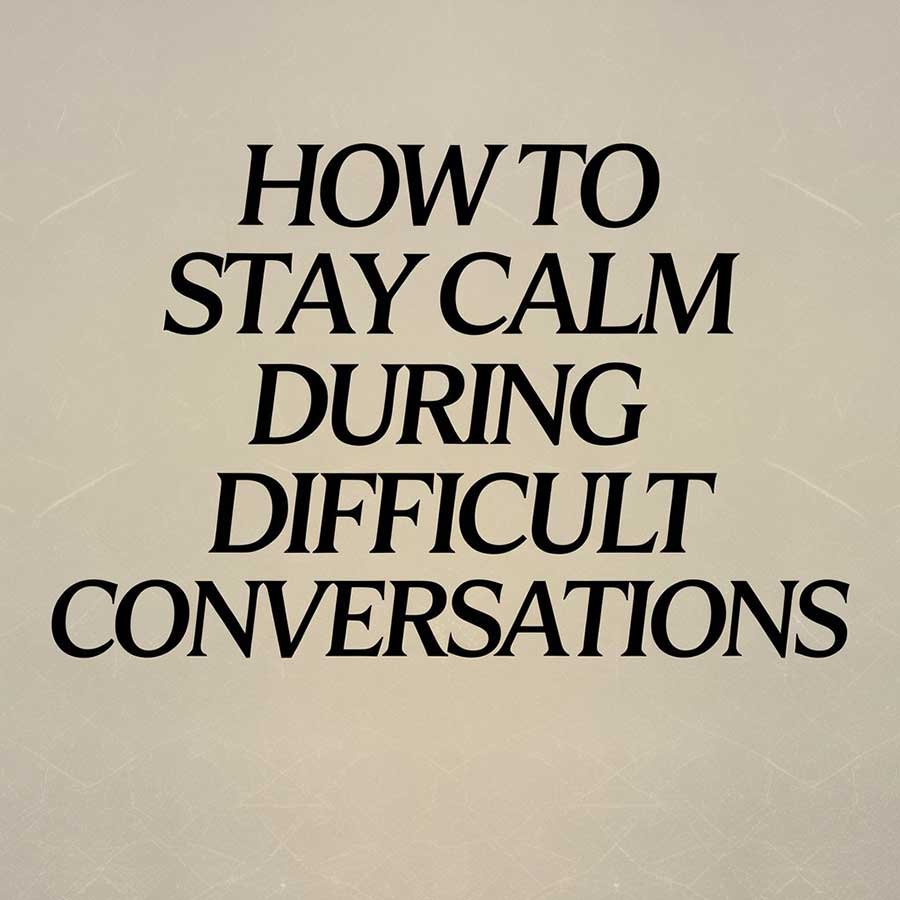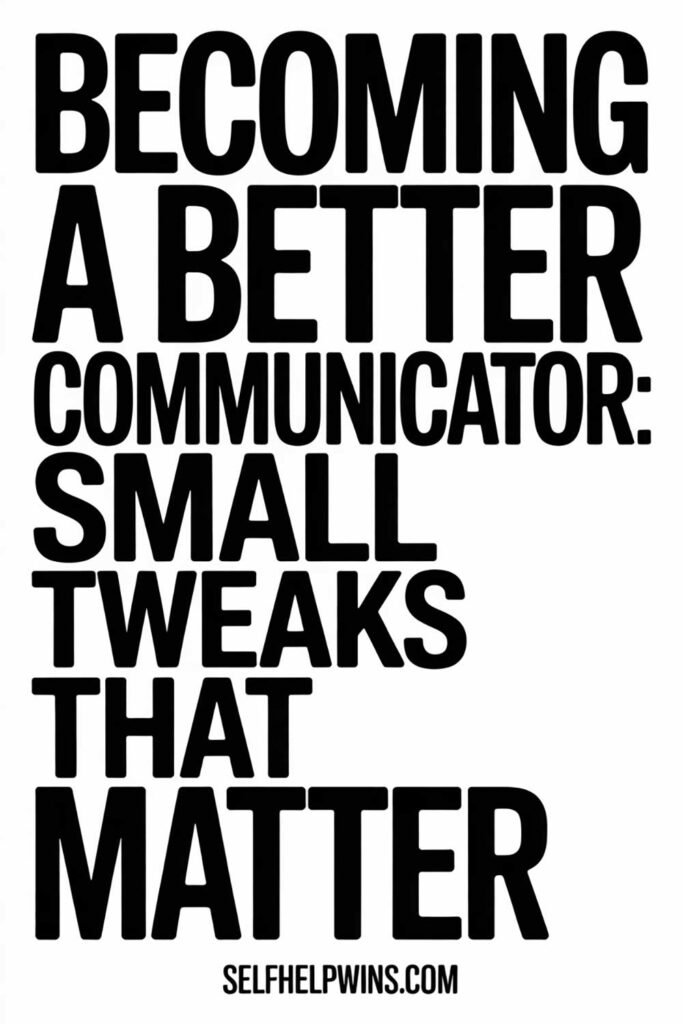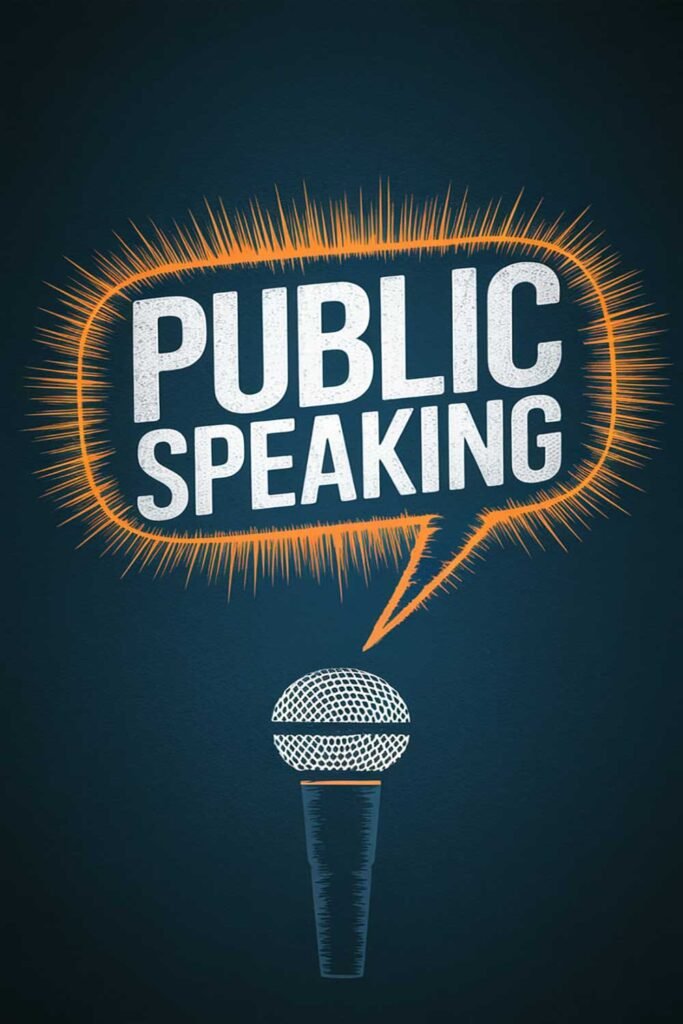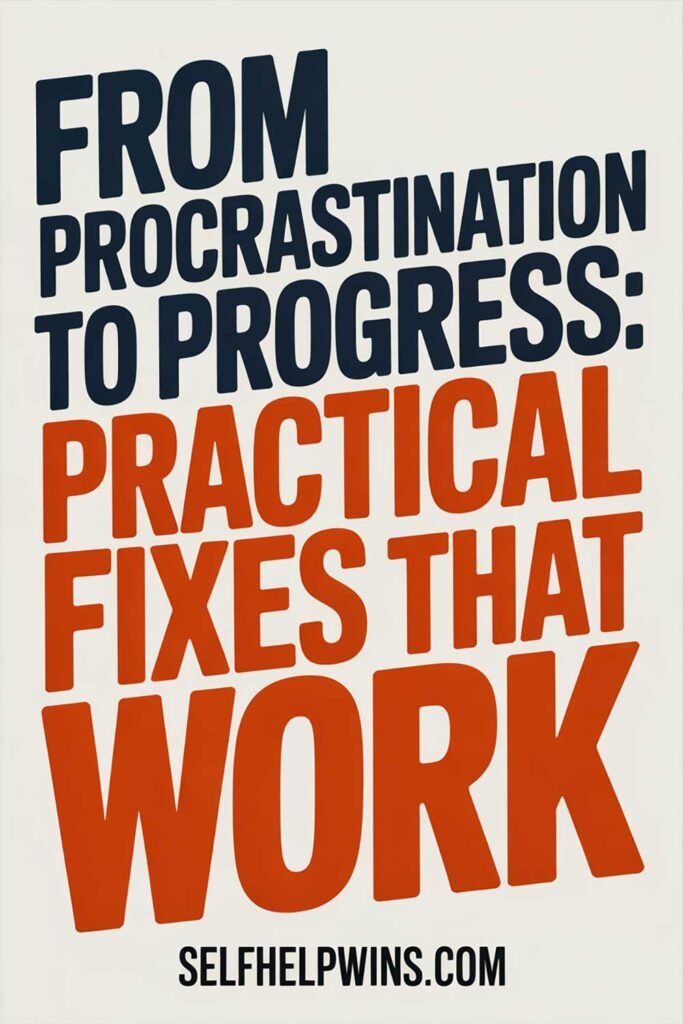
How to Stay Calm During Difficult Conversations
Difficult conversations are a part of life, whether at work, in relationships, or with friends and family. The ability to remain calm and composed during these moments can make a significant difference in the outcome. Staying calm helps you communicate effectively, think rationally, and prevent misunderstandings from escalating. Here are proven strategies to help you keep your composure and navigate challenging discussions with confidence.

1. Prepare Mentally and Emotionally
Going into a difficult conversation unprepared can heighten anxiety and lead to reactive responses. Taking time to prepare mentally can help you remain calm and in control.
How to Prepare:
- Reflect on the purpose of the conversation and your key points.
- Anticipate potential challenges and plan constructive responses.
- Remind yourself to focus on solutions rather than blame.
2. Practice Deep Breathing Techniques
When tension rises, deep breathing can help regulate your nervous system and reduce stress.
Simple Breathing Exercises:
- 4-7-8 Breathing: Inhale for 4 seconds, hold for 7, and exhale for 8.
- Box Breathing: Inhale, hold, exhale, and hold again for 4 seconds each.
- Slow Inhalations: Breathe in deeply through your nose, hold briefly, and exhale slowly through your mouth.
3. Stay Aware of Your Body Language
Nonverbal communication plays a crucial role in how your message is received.
Tips for Positive Body Language:
- Maintain relaxed posture and open gestures.
- Keep eye contact without staring aggressively.
- Avoid crossing your arms, as it can appear defensive.
- Nod occasionally to show attentiveness and understanding.
4. Listen Actively Before Responding
Reacting too quickly can escalate tension. Active listening allows you to process information fully before responding.
Steps for Active Listening:
- Focus entirely on the speaker without interrupting.
- Acknowledge their perspective by nodding or summarizing key points.
- Ask clarifying questions if something is unclear.
5. Control Your Tone and Words
Your tone of voice can either de-escalate or intensify a conversation.
Ways to Maintain a Calm Tone:
- Speak slowly and deliberately to avoid sounding defensive.
- Use a neutral or warm tone rather than raising your voice.
- Choose words that promote understanding rather than blame.
6. Take Breaks If Needed
Sometimes, stepping away from a heated discussion can prevent an emotional outburst.
When to Take a Break:
- If you feel overwhelmed and unable to think clearly.
- When emotions are escalating beyond productive discussion.
- If the other person becomes aggressive or uncooperative.
7. Focus on the Solution, Not the Problem
Dwelling on the issue without seeking resolution can fuel frustration.
How to Stay Solution-Oriented:
- Shift the conversation toward finding common ground.
- Express your needs while being open to the other person’s perspective.
- Look for compromise rather than aiming to “win” the argument.
8. Reframe Negative Thoughts
Your inner dialogue can influence how you react in difficult conversations.
Thought Reframing Techniques:
- Instead of “They don’t respect me,” think “Maybe they’re just stressed too.”
- Swap “This is going to be a disaster” with “I have the ability to handle this.”
- Challenge exaggerated thoughts by asking, “Is this really as bad as it seems?”
9. Set Boundaries and Know When to Walk Away
Not every conversation will lead to resolution, and that’s okay.
Setting Healthy Boundaries:
- Politely but firmly express when a topic is off-limits.
- Disengage from discussions that turn toxic or unproductive.
- Give yourself permission to step away if your well-being is at risk.
10. Reflect and Learn from Each Conversation
Every difficult conversation is an opportunity for personal growth.
Post-Conversation Reflection:
- Ask yourself what went well and what could be improved.
- Recognize moments where you stayed calm and learn from them.
- Identify triggers and work on strategies to manage them in future discussions.
Picture This
Imagine facing a tough conversation without fear or anxiety. You listen attentively, respond thoughtfully, and maintain your composure even when tensions rise. Instead of dreading confrontation, you approach discussions with confidence and clarity, knowing you have the tools to navigate them effectively.
How much more peaceful and productive would your interactions be if you mastered the ability to stay calm?
Please Share This Article
If you found these tips helpful, please share this article with anyone who struggles with handling difficult conversations. A calm and composed response can make all the difference in resolving conflicts effectively.






